The NEXT ROUND of Is There a Better Way for Families and Support Teams starts in 2026!
We are glad you are here!
The 12-week program is just one way you can join us to explore and add to our understanding of why people experience stress or dysregulation which can lead to them showing us that they need support. Some of these ways can at times be of concern to us or challenge our thinking about how to support them well. This program helps us in understanding people's needs and how we can support them and yourself to lead the best life possible.
Informed by the latest knowledge, research and lived experience
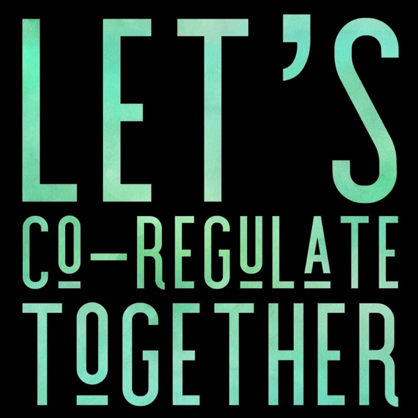
Grounded in neuroscience and human rights
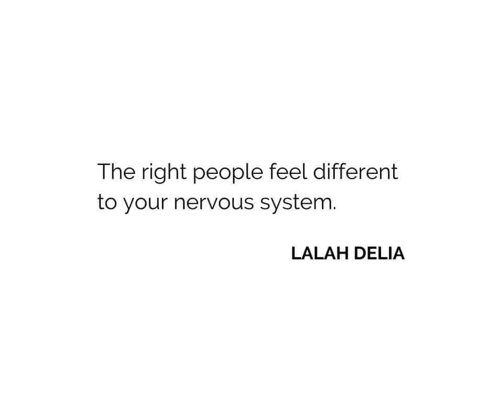
Understanding and respecting neurodiversity
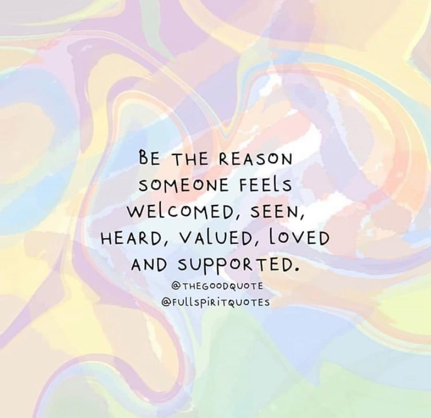
What does the program look like?
-
- 12 weeks of self-paced and guided learning in an online format
- Access to 7 chapters of information equivalent to around 11-15 hours of learning for 12 months
- 4 live group zoom sessions where we can personally connect and explore your individual needs
- Program booklet
- Access to other resources and tools you can use in your planning and support in an ongoing way
- additional added videos and information for no extra fee
- connection to our ITaBW Families network and online hub where you can access information and conversations all the time (coming soon)
Building our insight is an important step to knowing how we may travel a road of developing supports across our life journey.
We know what's important and what works. Our own kids are now adults who have at times experienced stress in their life resulting in behaviour that can be hard for them and others. They now tell us and others including the NDIS what is important and what works to feel good, feel in control, feel connected and have the life they choose.
How do we join?
The program can be accessed in different ways depending on your individual needs.
Joining independently or as a small group?
We run the program a couple of times a year for people who want to join on do their own or with maybe one or two people from a support team/network. This way we create a community of practice for those joining at that time.
Joining with many people in your support team?
If you are a parent and want to join up with 3 or more of your support team, you can access the program at any time as we will organise a personalised schedule of coaching sessions for your team. This way the coaching sessions are specifically focussed on the person with disability at the centre of support.
Are you receiving support from Microboards behaviour support already?
You can contact us to find out a range of ways to fund the course, access the content and hold coaching sessions.
What is the Cost?
It depends on how you join.
This program is aimed at family members, and at times the people in the person's direct support network. Often we have a person's whole support team joining, in which case we work directly with your support network to personalise the content and coaching.
| Enrolment Type | What does this look like? | Cost |
| Family Member | If you are a parent or other family member, you can do one enrolment per family. Other family members can use the same enrolment to join as well.
This enrolment means:
|
$595 |
| Support person not linked to a family enrolment | If you are a support person enrolling on your own because you want to do the course, this is a full enrolment.
This enrolment means:
|
$595 |
| Support worker linked to a family enrolment | If a family wants to enrol a support worker that is part of the team, they can enrol them at a reduced cost to access the course. Cost for each support worker and access to the course includes:
|
$100 per support worker |
| Family have done the course before? | If a family wants to redo the course either alone or with their team, and want coaching;
Family want to access just the online material to review; Family want to send one or two SW to do the course and access coaching without family doing it again; Family want one or two SW to access the online material only. |
$595
$200
$200 per support worker $100 per support worker |
| Family want to enrol 'the team' | Family want to organise personalised access to the course at any time which includes:
To access this, a family must enrol as well as 3 or more support workers Contact us at any time! You do not need to wait for the next 'course round'. |
$595 family enrolment
$100 per support worker (min of 3 support workers) |
| You are receiving Behaviour Support from Microboards Australia
|
Contact us!! |
The program may be funded through your NDIS plan, but if not, and access is prohibitive because of cost, we encourage you to contact us to discuss options. We are here to help families. This is really important to us, so please do call.
If enrolling in a course through our scheduled dates, enrolments are capped at smaller groups of participants so we can connect on a more personal level with participants in coaching sessions. We offer the program at regular times through the year, so the best way to enrol is to send in an EOI and we can let you know when the next one is starting or you can jump on our events page to see the starting date of the next round.
Once you've registered your interest, we will contact you to let you know some more details about the course and the link to enrol.
I have finished the course and it was fantastic! I have never received so much information that I can implement in my work or my life before. I can not recommend your course enough. It has helped me grow so much as a support worker as well as a person. I feel that it has changed the relationship between myself and the person I support in a positive way.
Thankyou so much for the most amazing course. It is best course I have ever completed. The Coaching is such a great idea to reflect on learning. I am up to the parental leadership section at the moment, I was crying listening to it and so many of the parts resonated with my families experience. It is never expressed and discussed. I think being a Teacher/Therapist and a parent of a child with a disability is a unique journey and I have not meet anyone else on this journey. I have absolutely loved the course as have my support team.
Thanks for such a insightful and knowledgeable course and content. I got so much out of it and encouraged myself and my family to look at our son and brother differently and better understand him. I would highly recommend it to anyone I know. Thanks for sharing all your personal journeys it really helps to see things thru others eyes.
Our program has been evaluated by the University of Western Australia a few times now. Each time the outcomes have shown long lasting impact on the capacity, wellbeing and quality of life for families and their loved ones. We can tell you more about this if you are interested.
What's included?
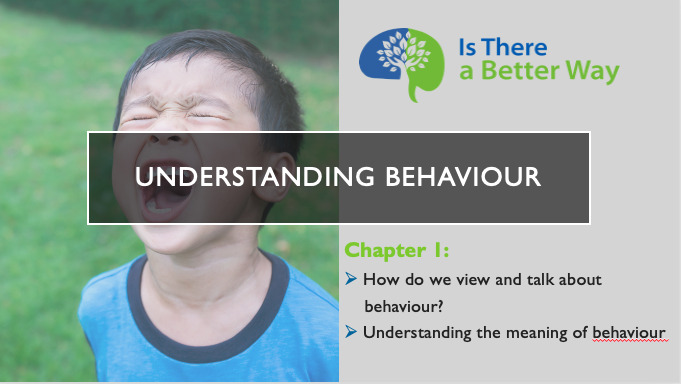
Chapter 1
Understanding Behaviour
Our introduction chapter will have us explore how we think about behaviour and start to explore what might influence a person to need to engage or explores themselves in ways that are hard for them and or others. We have a closer look at the way our brain and bodies work in response to stress and how this can lead to experiences or behaviours that may concern us.
Chapter 2
When our needs are not met
We know that we all will experience stress or dysregulation and sometimes do things that stress us or others when our underlying needs are not met or something is wrong. But what are those underlying needs? How do we understand our needs from a human rights, brain and body experience and relationship based lens?
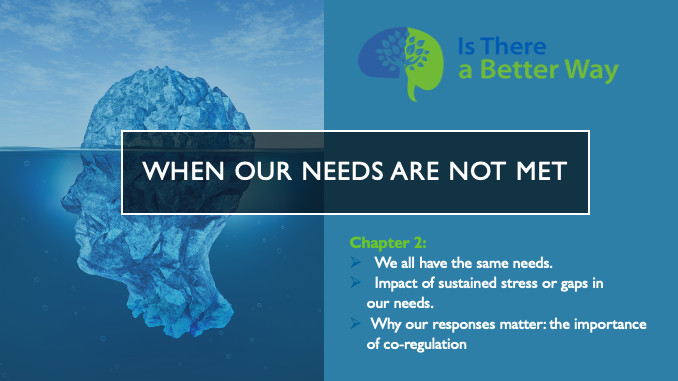
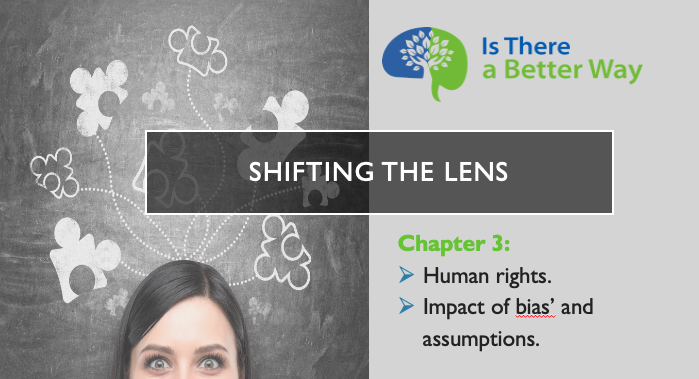
Chapter 3
Shifting the lens
How we view behaviour and the needs of people is so very important when understanding and creating approaches to support people well and hopefully reduce the likelihood of behaviours that can be hard for them and others. Here we talk about some important frameworks and ways of thinking to consider as a starting point to creating change.
Chapter 4 (Part 1)
Supporting needs and reducing stress
In this chapter we start to explore how to build supports to meet underlying needs in relationships, health and sensory regulation. How does this impact on our general regulation and stress?
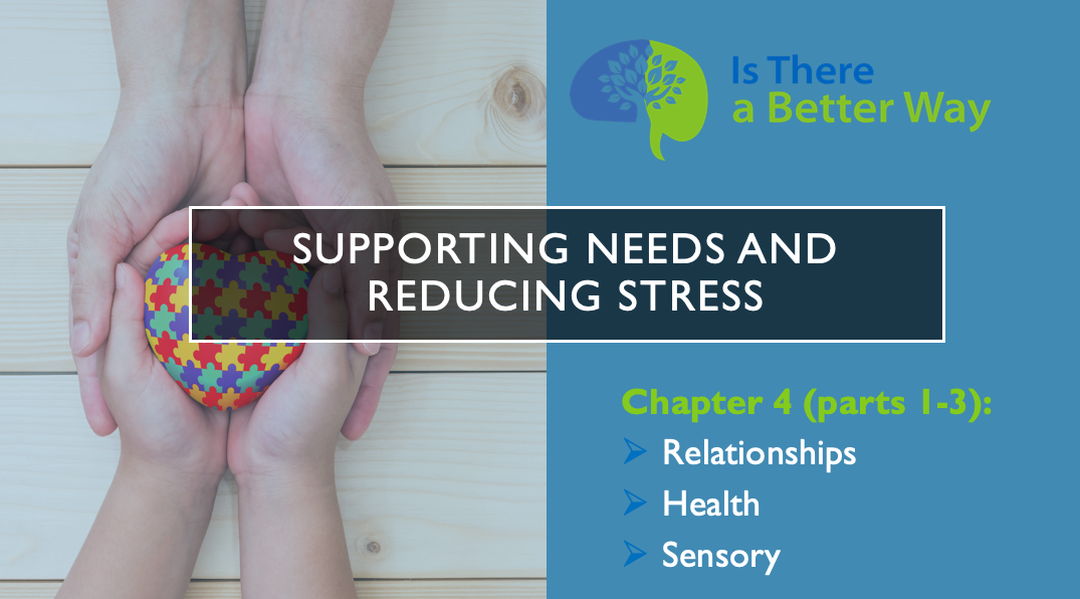
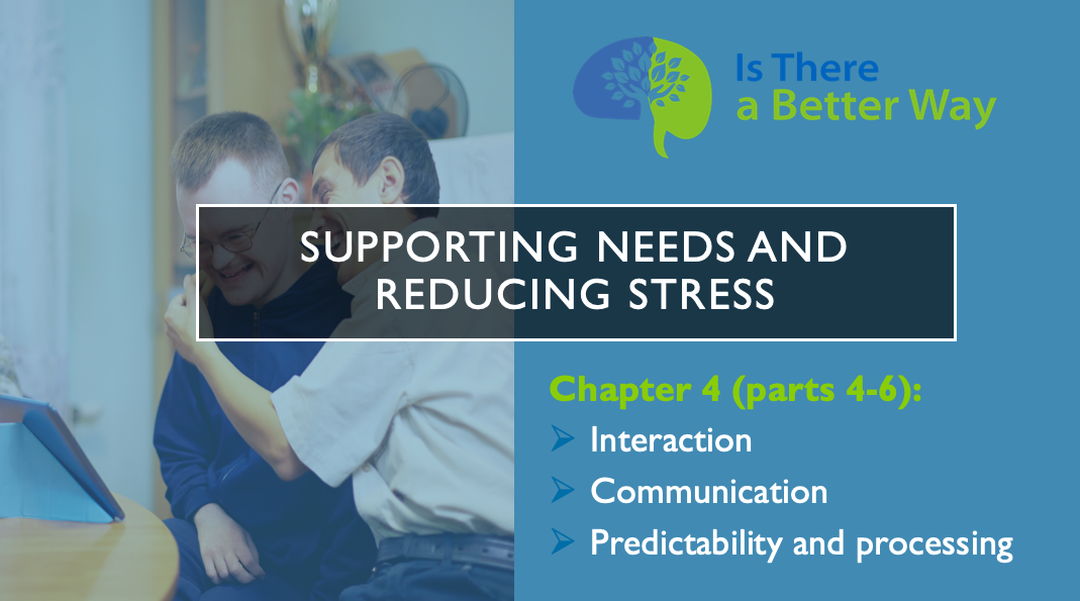
Chapter 4 (Part 2)
Supporting needs and reducing stress
We continue our discussion about underlying needs, discussing how to build supports to meet needs for interaction, communication, predictability and processing. What does this mean for all people including neurodivergent people and those that may have experienced trauma?
Chapter 5
A co-regulation approach
Effective support is based on helping people be regulated, feel safe and connected. We discuss how regulation develops regardless of age and how we can best support and respond when our loved one is stressed, anxious, upset or simply finding something hard. How do we do this from a brain and body approach?
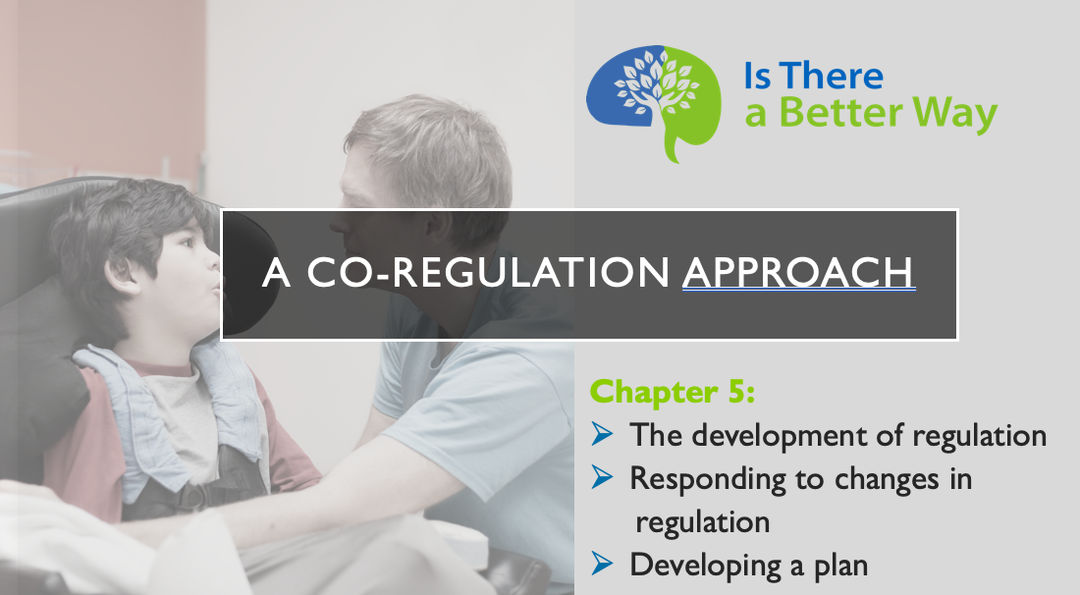
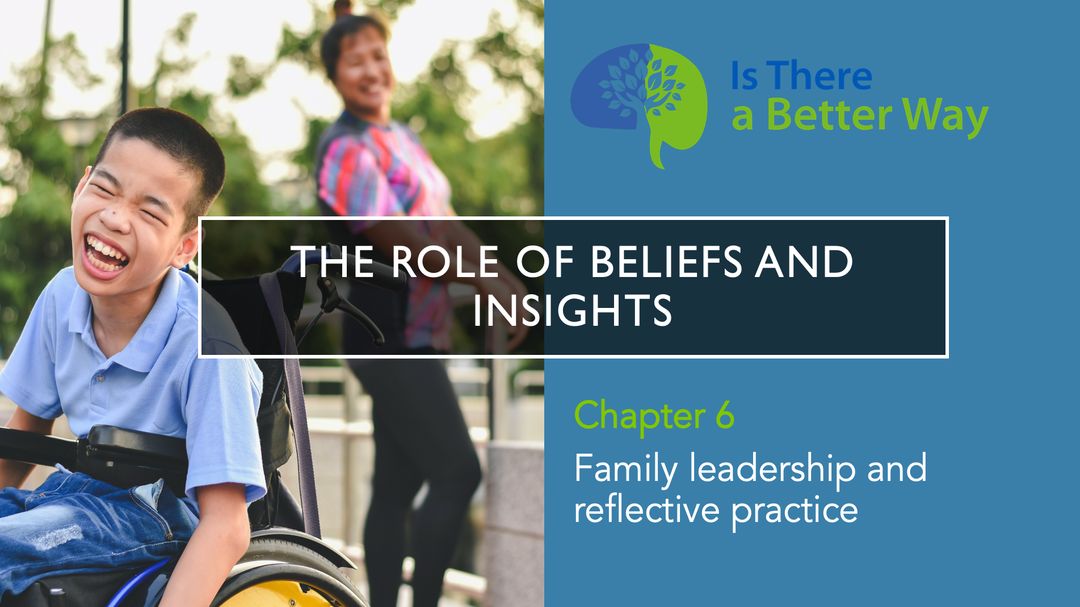
Chapter 6
Family Leadership
Our last chapter helps us pull all the information together and think about how you, as the most important and knowledgable person in your son or daughter's life can lead the way in planning and advocating for the best support approaches and services that make sense to your family.
